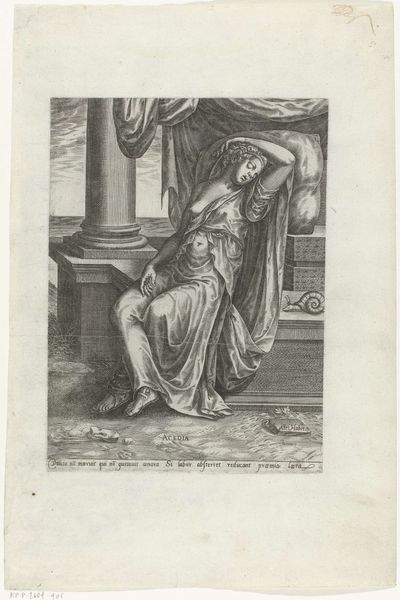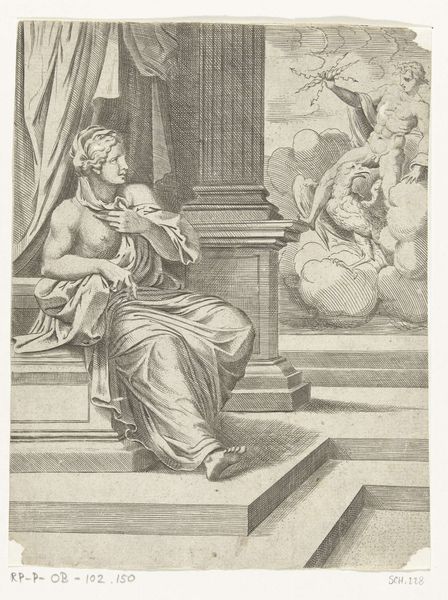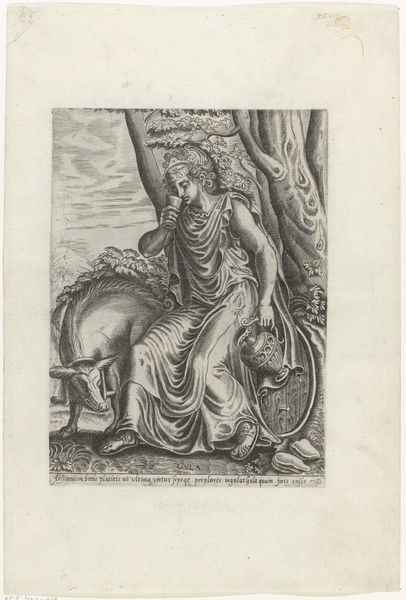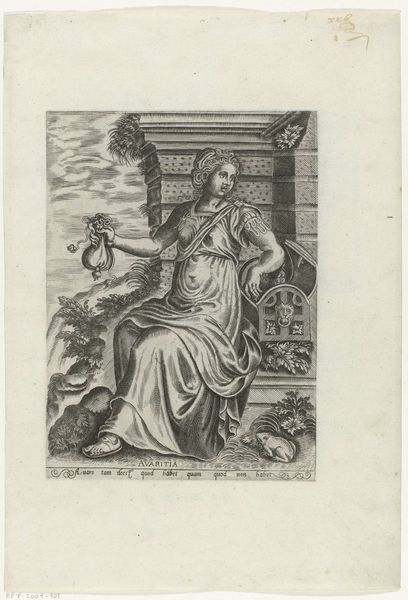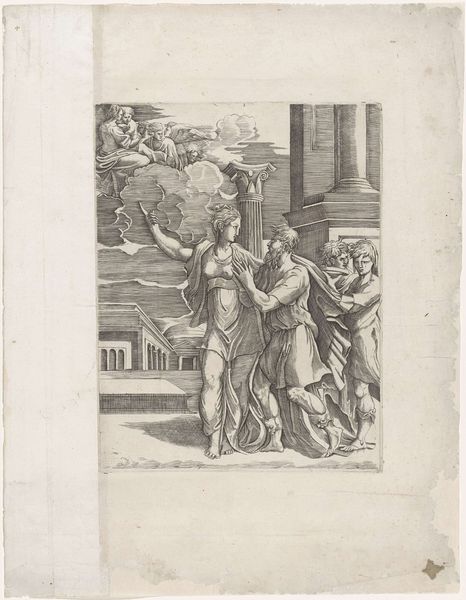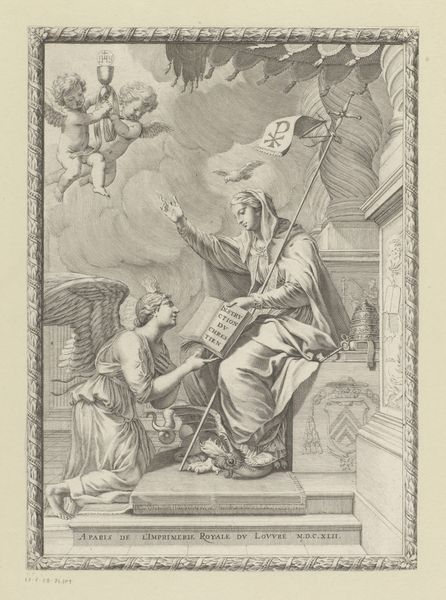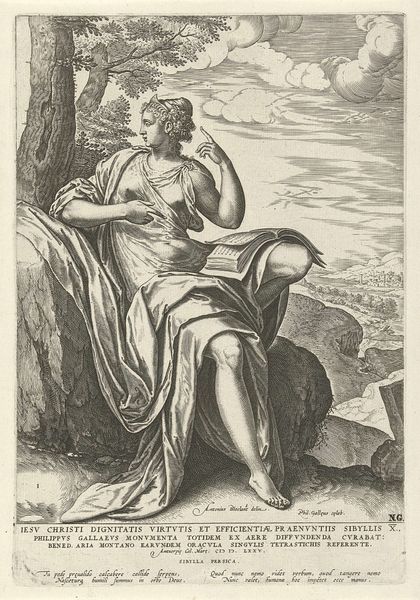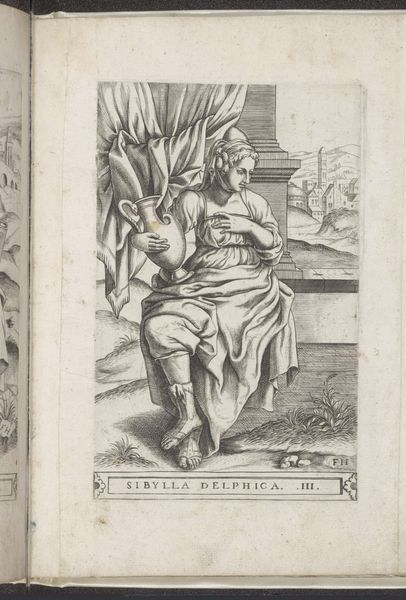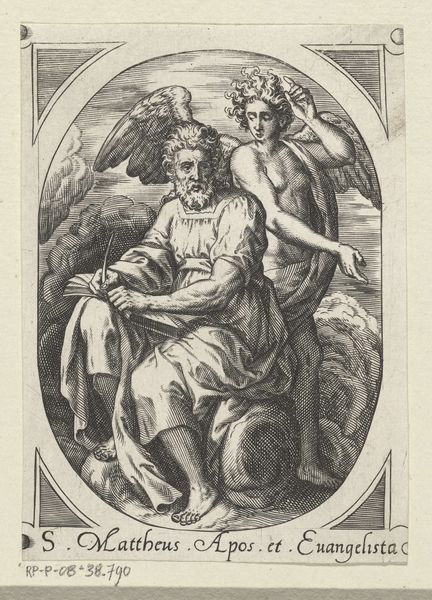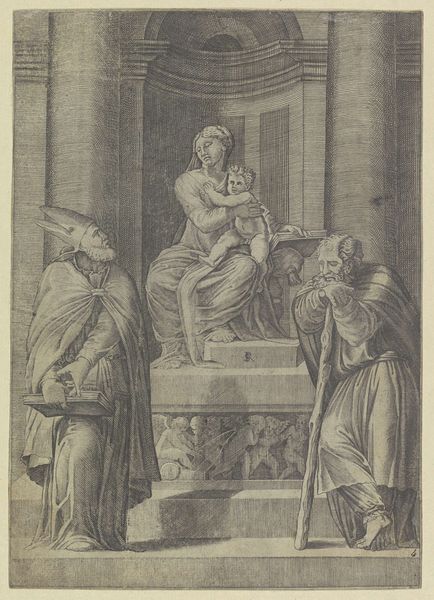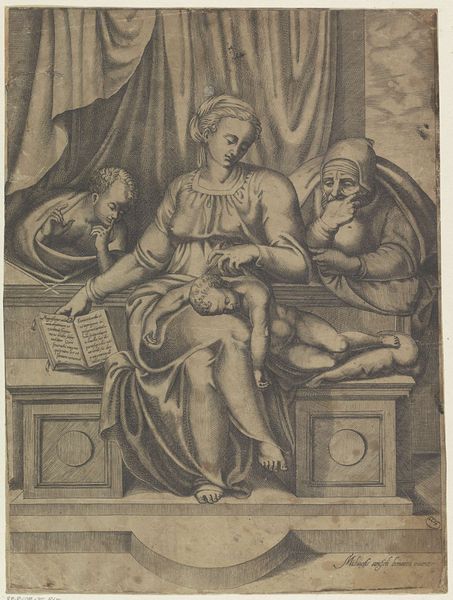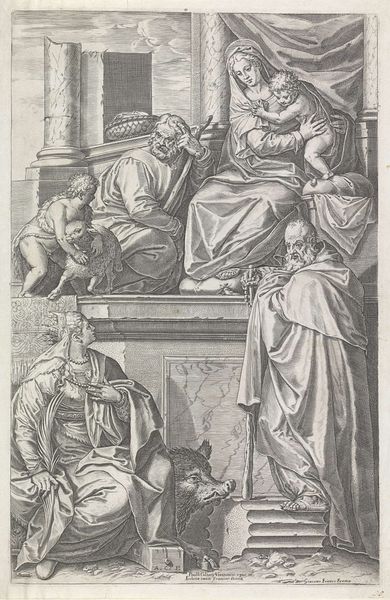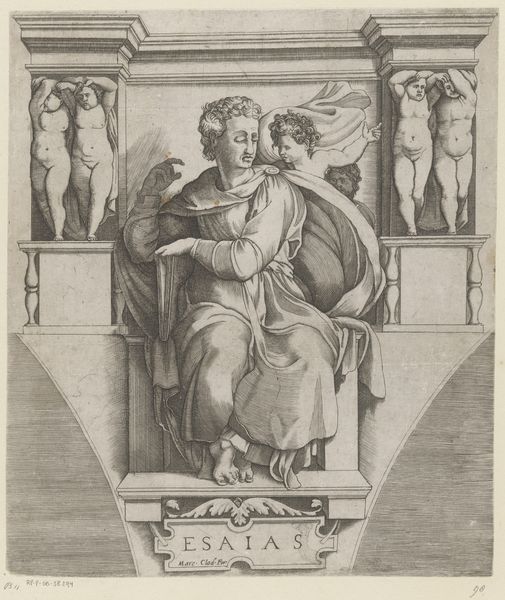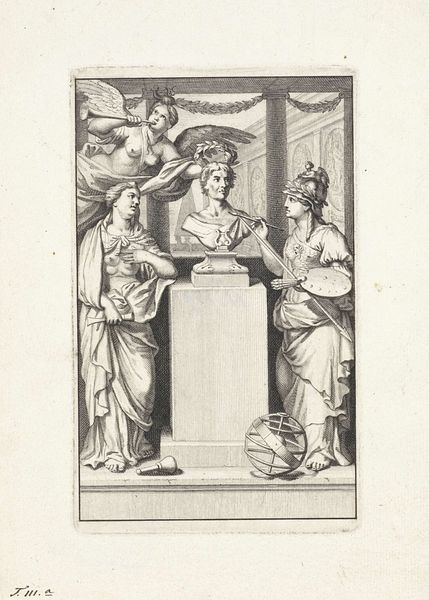
print, engraving
#
allegory
# print
#
figuration
#
11_renaissance
#
engraving
Dimensions: height 220 mm, width 162 mm
Copyright: Rijks Museum: Open Domain
This print, "Wellust" meaning "Lust" in Dutch, was made by an anonymous artist in the Netherlands, sometime in the 16th or 17th century. It's an engraving, a medium that allowed for the wide distribution of images during the early modern period. The image depicts a figure representing lust, identifiable by the Latin inscription "LVXURIA" at the bottom and their intimate embrace of a dog. The artist uses classical elements, like the column in the background, to lend a veneer of sophistication to the scene. But look closer and you see that the work is not a celebration of beauty, but a moralizing condemnation. Prints like this one played a significant role in shaping public opinion. They were often commissioned by religious institutions or political bodies to promote certain values or criticize perceived vices. The visual codes used here would have been instantly recognizable to contemporary viewers, reinforcing societal norms about morality. As historians, we can consult period texts, religious treatises, and social commentaries to further understand the context in which this print was made and the messages it conveyed. The meaning of art is never fixed but rather depends on the social and institutional frameworks in which it is created and consumed.
Comments
No comments
Be the first to comment and join the conversation on the ultimate creative platform.
